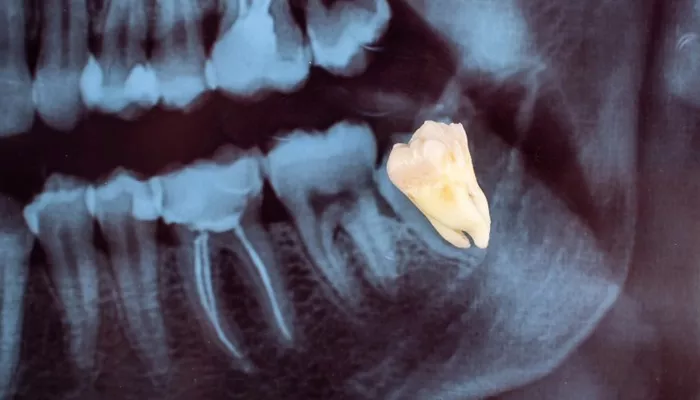Wisdom teeth, also known as third molars, are the last set of molars that typically emerge in late adolescence or early adulthood. For many people, these teeth can cause discomfort and complications, leading to their removal. This article will explore the function of wisdom teeth, their evolutionary significance, and why they are considered vestigial in modern humans.
What Are Wisdom Teeth?
Wisdom teeth are the third set of molars located at the back of the mouth. Most people have four wisdom teeth, one in each quadrant of the mouth. They usually emerge between the ages of 17 and 25, a period often referred to as the “age of wisdom,” hence the name.
The Function of Wisdom Teeth
Historically, wisdom teeth served a purpose in our ancestors’ diets. Here are some key points regarding their function:
Chewing and Grinding: Wisdom teeth were essential for our ancestors, who had a diet rich in tough, coarse foods. These foods included raw plants, roots, and meats. The extra molars helped in grinding and chewing these hard substances, making it easier to digest food.
Compensating for Tooth Loss: In the past, dental hygiene was not as advanced as it is today. People often lost teeth due to decay, wear, or injury. The emergence of wisdom teeth provided an additional set of molars to compensate for lost teeth, helping maintain chewing efficiency.
Jaw Size and Tooth Count: Our ancestors had larger jaws that could accommodate more teeth. The additional molars helped them process their food effectively. However, as human diets changed and cooking methods improved, the need for these extra teeth diminished.
SEE ALSO: How Long Does Swelling Last After Wisdom Teeth Surgery?
Why Are Wisdom Teeth Considered Vestigial?
The term “vestigial” refers to body parts that have lost their original function through evolution. Wisdom teeth are considered vestigial for several reasons:
Evolutionary Changes: Over thousands of years, human diets have evolved significantly. With the advent of cooking and food processing, the need for extra molars has decreased. Our ancestors needed wisdom teeth to chew tough foods, but modern diets consist of softer, more processed foods that do not require as much grinding.
Jaw Size Reduction: As humans evolved, our jaw sizes became smaller. This reduction is thought to be a response to changes in diet and lifestyle. With smaller jaws, there is often not enough space for wisdom teeth to emerge properly. This can lead to impaction, where the teeth become trapped beneath the gums.
Impaction and Complications: Many people experience complications with their wisdom teeth, such as impaction, overcrowding, and infection. When wisdom teeth do not have enough space to emerge, they can push against adjacent teeth, causing pain and misalignment.
This is a significant reason why dentists often recommend their removal.
Lack of Functionality: In many cases, wisdom teeth do not serve a functional purpose in modern humans. They often do not erupt properly or may only partially emerge, making them more prone to cavities and gum disease. As a result, they are often considered unnecessary.
The Evolutionary Perspective
To understand why wisdom teeth are vestigial, it is essential to consider the evolutionary perspective:
Ancestral Diets: Early humans had a diet that required more chewing power. Their teeth were adapted to process raw and fibrous foods. The extra molars provided the necessary grinding surface for these diets.
Changes in Lifestyle: As humans developed tools and cooking methods, food became easier to chew. This shift reduced the need for additional molars. The introduction of agriculture and softer diets further diminished the functional necessity of wisdom teeth.
Genetic Variation: Not all humans develop wisdom teeth. Some individuals are born without them, while others may have fewer than four. This genetic variation suggests that the presence of wisdom teeth is no longer essential for survival.
The Impact of Wisdom Teeth on Oral Health
While wisdom teeth may have served a purpose in the past, their presence can lead to various oral health issues today. Here are some common problems associated with wisdom teeth:
Impaction: When there is not enough space in the jaw for wisdom teeth to emerge, they can become impacted. This means they are trapped beneath the gums and may cause pain, swelling, and infection.
Overcrowding: Wisdom teeth can push against adjacent teeth, leading to misalignment and overcrowding. This can affect the overall alignment of the bite and may require orthodontic treatment.
Cavities and Gum Disease: Partially erupted wisdom teeth are difficult to clean properly. This can lead to a higher risk of cavities and gum disease in the surrounding teeth and tissues.
When Should Wisdom Teeth Be Removed?
Due to the potential complications associated with wisdom teeth, many dentists recommend their removal. Here are some indications that wisdom teeth may need to be extracted:
Pain or Discomfort: If you experience pain or discomfort in the back of your mouth, it may be a sign that your wisdom teeth are impacted or causing other issues.
Swelling or Infection: Signs of infection, such as swelling, redness, or pus around the gums, indicate that your wisdom teeth may need to be removed.
Crowding or Misalignment: If your dentist notices that your wisdom teeth are pushing against other teeth, leading to overcrowding or misalignment, extraction may be necessary.
Regular Dental Check-Ups: Regular dental check-ups allow your dentist to monitor the development of your wisdom teeth. If they show signs of potential problems, your dentist may recommend removal before complications arise.
Conclusion
Wisdom teeth are an interesting aspect of human evolution. While they once served a vital function in our ancestors’ diets, they have become vestigial in modern humans. The changes in diet, jaw size, and lifestyle have rendered these teeth largely unnecessary, leading to various oral health issues.

